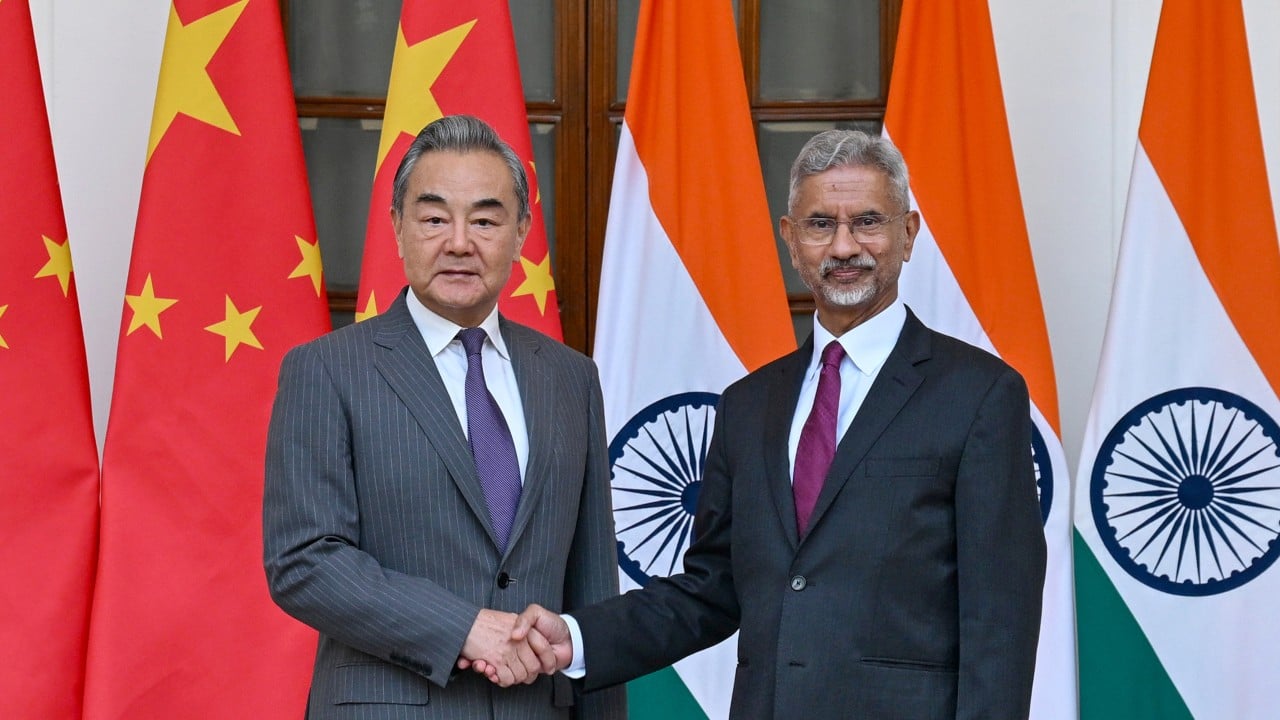China and India should see each other as “partners and opportunities” and offer the world “much-needed certainty and stability”, Chinese Foreign Minister Wang Yi said during his first visit to India in three years amid recovering bilateral ties.
Advertisement
Speaking to his Indian counterpart, Subrahmanyam Jaishankar, in New Delhi on Monday, Wang said that both countries should “put each other’s precious resources into development and revitalisation”.
“China and India should explore the right path of treating each other with mutual respect and trust, living in peace, pursuing development together and achieving win–win cooperation … and consolidate the momentum of improving China-India relations,” he said, according to a Chinese foreign ministry readout.
According to The Economic Times, an Indian media outlet, China has promised to address India’s three concerns, namely “rare earths, fertilisers and tunnel boring machines”, citing sources.
Wang’s trip marked another milestone in ties between China and India, which dropped to a historic low after a deadly border clash in 2020. The two countries are now seeing their relationship improve as they both also face an uphill trade war with the US.
According to India’s foreign ministry, the top diplomats’ conversation included various topics, including economic and trade issues, pilgrimages, people-to-people contacts, border trade, the sharing of river data and connectivity.
Advertisement
After arriving on Monday, the Chinese foreign minister held talks about the border with Indian National Security Adviser Ajit Doval on Tuesday and is expected to meet Prime Minister Narendra Modi later in the day.
Jaishankar, for his part, said Beijing and Delhi had to engage in “mutual respect, mutual sensitivity and mutual interest”, and said “differences must not become disputes, nor competition conflict”.


